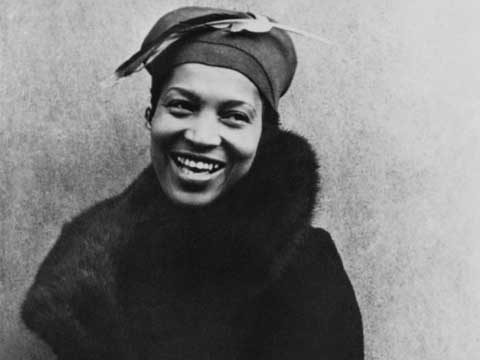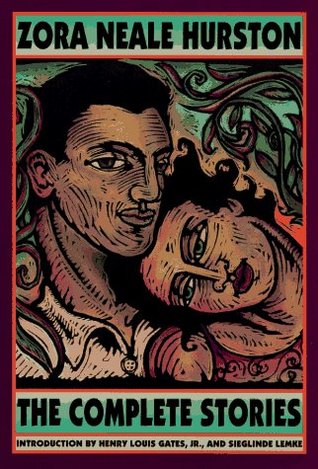I would like to take this month to help share the amazing contributions to literature by black authors. I am in the process of adding to the books I have in my books and the author I am featuring today is a new addition to my personal collection.
 Zora Neale Hurston
Zora Neale Hurston
Zora Neale Hurston is considered one of the pre-eminent writers of twentieth-century African-American literature. Hurston was closely associated with the Harlem Renaissance and has influenced such writers as Ralph Ellison, Toni Morrison, Gayle Jones, Alice Walker, and Toni Cade Bambara.
Hurston became the most successful and most significant black woman writer of the first half of the 20th century. Over a career that spanned more than 30 years, she published four novels, two books of folklore, an autobiography, numerous short stories, and several essays, articles and plays.
Born on Jan. 7, 1891, in Notasulga, Alabama, Hurston moved with her family to Eatonville, Florida, when she was still a toddler. Her writings reveal no recollection of her Alabama beginnings. For Hurston, Eatonville was always home.
Established in 1887, the rural community near Orlando was the nation’s first incorporated black township. It was, as Hurston described it, “a city of five lakes, three croquet courts, three hundred brown skins, three hundred good swimmers, plenty guavas, two schools, and no jailhouse.”
In Eatonville, Zora was never indoctrinated in inferiority, and she could see the evidence of black achievement all around her. She could look to town hall and see black men, including her father, John Hurston, formulating the laws that governed Eatonville. She could look to the Sunday Schools of the town’s two churches and see black women, including her mother, Lucy Potts Hurston, directing the Christian curricula. She could look to the porch of the village store and see black men and women passing worlds through their mouths in the form of colorful, engaging stories.
Growing up in this culturally affirming setting in an eight-room house on five acres of land, Zora had a relatively happy childhood, despite frequent clashes with her preacher-father, who sometimes sought to “squinch” her rambunctious spirit, she recalled. Her mother, on the other hand, urged young Zora and her seven siblings to “jump at de sun.” Hurston explained, “We might not land on the sun, but at least we would get off the ground.”
Hurston’s idyllic childhood came to an abrupt end, though, when her mother died in 1904. Zora was only 13 years old. “That hour began my wanderings,” she later wrote. “Not so much in geography, but in time. Then not so much in time as in spirit.”
After Lucy Hurston’s death, Zora’s father remarried quickly–to a young woman whom the hotheaded Zora almost killed in a fistfight–and seemed to have little time or money for his children. “Bare and bony of comfort and love,” Zora worked a series of menial jobs over the ensuing years, struggled to finish her schooling, and eventually joined a Gilbert & Sullivan traveling troupe as a maid to the lead singer. In 1917, she turned up in Baltimore; by then, she was 26 years old and still hadn’t finished high school. Needing to present herself as a teenager to qualify for free public schooling, she lopped 10 years off her life–giving her age as 16 and the year of her birth as 1901. Once gone, those years were never restored: From that moment forward, Hurston would always present herself as at least 10 years younger than she actually was. Apparently, she had the looks to pull it off. Photographs reveal that she was a handsome, big-boned woman with playful yet penetrating eyes, high cheekbones, and a full, graceful mouth that was never without expression.
Zora also had a fiery intellect, an infectious sense of humor, and “the gift,” as one friend put it, “of walking into hearts.” Zora used these talents–and dozens more–to elbow her way into the Harlem Renaissance of the 1920s, befriending such luminaries as poet Langston Hughes and popular singer/actress Ethel Waters. Though Hurston rarely drank, fellow writer Sterling Brown recalled, “When Zora was there, she was the party.” Another friend remembered Hurston’s apartment–furnished by donations she solicited from friends–as a spirited “open house” for artists. All this socializing didn’t keep Hurston from her work, though. She would sometimes write in her bedroom while the party went on in the living room.
By 1935, Hurston–who’d graduated from Barnard College in 1928–had published several short stories and articles, as well as a novel (Jonah’s Gourd Vine) and a well-received collection of black Southern folklore (Mules and Men). But the late 1930s and early ’40s marked the real zenith of her career. She published her masterwork, Their Eyes Were Watching God, in 1937; Tell My Horse, her study of Caribbean Voodoo practices, in 1938; and another masterful novel, Moses, Man of the Mountain, in 1939. When her autobiography, Dust Tracks on a Road, was published in 1942, Hurston finally received the well-earned acclaim that had long eluded her. That year, she was profiled in Who’s Who in America, Current Biography and Twentieth Century Authors. She went on to publish another novel, Seraph on the Suwanee, in 1948.
Still, Hurston never received the financial rewards she deserved. (The largest royalty she ever earned from any of her books was $943.75.) So when she died on Jan. 28, 1960–at age 69, after suffering a stroke–her neighbors in Fort Pierce, Florida, had to take up a collection for her February 7 funeral. The collection didn’t yield enough to pay for a headstone, however, so Hurston was buried in a grave that remained unmarked until 1973.
That summer, a young writer named Alice Walker traveled to Fort Pierce to place a marker on the grave of the author who had so inspired her own work. Walker found the Garden of Heavenly Rest, a segregated cemetery at the dead end of North 17th Street, abandoned and overgrown with yellow-flowered weeds.
 I just picked up this book from the Goodwill and plan to read it. I love when I can find a great book to add to my collection. I have not read anything by Ms. Hurston so this will one will be my first. Especially after reading about her life, I am eager to read her words on the printed page.
I just picked up this book from the Goodwill and plan to read it. I love when I can find a great book to add to my collection. I have not read anything by Ms. Hurston so this will one will be my first. Especially after reading about her life, I am eager to read her words on the printed page.
If you have a favorite of Ms. Hurston’s books please let me know. If you haven’t read anything by her, I hope you might find one of her books and give them a try too. Happy reading!


join the conversation